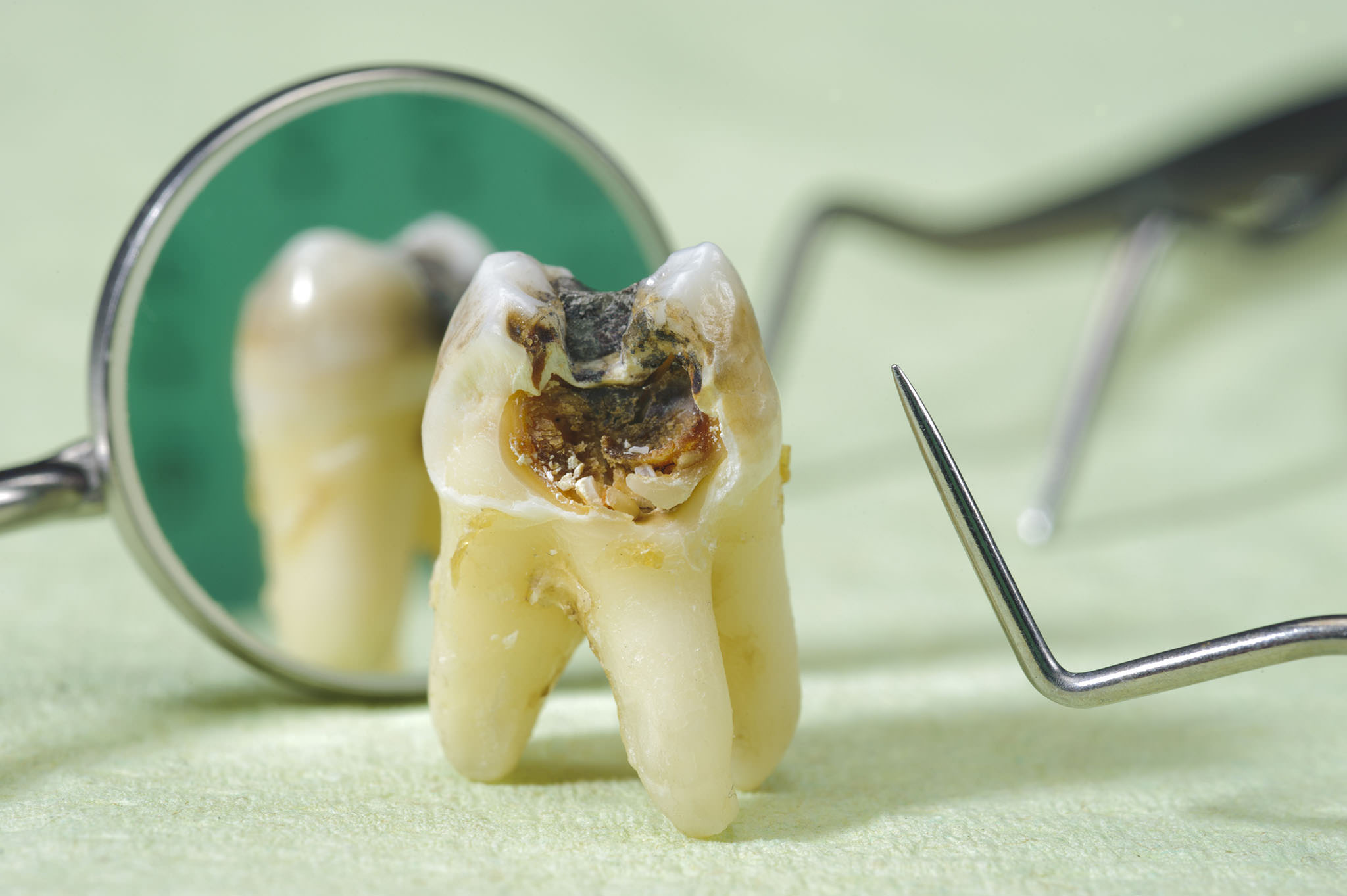
You never want to hear a dentist say that you have a cavity. A cavity is essentially a hole in one of your teeth, caused by decay that happens over time. You might not even know you have a cavity until certain symptoms become impossible to ignore.
Unfortunately, once you have a cavity, you’re going to need a dentist to address it. To avoid the need for a filling, you’ll want to take good care of your teeth and watch out for early signs that something might be wrong.
Signs You May Have a Dental Cavity
Sometimes, a very small cavity is impossible for you to detect by yourself. A dentist would need to probe your tooth or even take an X-ray of your teeth to find it. At some point, a cavity will begin to make itself known to you. Here are a few common symptoms of a developing cavity.
Toothache
Your tooth may throb or ache, and you may find yourself poking your tongue up against it. The pain may become especially acute when you eat something hot, cold, or really sweet.
Sensitivity
You’re finding that one of your teeth is much more sensitive to changes in temperature than it used to be. When you drink something hot or cold, you may find yourself wincing.
Discolored or dark spots on a tooth
It might be a white spot on your tooth, or it could be a dark or discolored spot. Either way, it doesn’t match the rest of your tooth, and it’s a sign that something is amiss.
Hole in the tooth
It might be a tiny hole. Or it might be a larger hole or crack that you can feel with your tongue. If you can spot a hole in your tooth, you’re looking at some dental work on the horizon.
Swelling or bleeding gums
Your gums may look raw, red, or swollen, especially close to the tooth line. There may even be some bleeding from your gums.
Bad breath
Bad breath could just be the result of the onions you ate for lunch. But bad breath that doesn’t go away, even after you’ve brushed your teeth or used mouthwash, could mean be a sign of a cavity. Persistent bad breath is often a sign of gum disease.
What Does the Start or a Cavity Look Like?
Any food debris left behind in your teeth can intermingle with bacteria in your mouth and begin to form a thin sticky coating called plaque. It can even form on your teeth near your gumline and cause gingivitis to develop.
Gingivitis, which is inflammation of the gums, is a known cause of tooth decay and cavities. You might start to notice that a section of gumline is becoming a little tender or that a tooth is starting to ache a bit. These signs could be your body warning you that a cavity is starting to develop.
You might notice a little white spot on your tooth, which is a sign that your tooth is losing important minerals that keep it strong and healthy. This process is called demineralisation.
You may not have any symptoms at all, which is why it’s important to embrace prevention efforts, too.

Can You Reverse a Dental Cavity?
You can’t reverse or heal a cavity, per se. But you can halt the problem of tooth decay, and possibly reverse it if the decay is in the enamel.
If your teeth are losing minerals, you can take steps to stop that process so your tooth enamel can strengthen and return to health before a cavity develops.
This typically includes making sure to remove any debris, including food particles, that might remain on your teeth after eating or drinking sugary beverages.

When To See a Dentist
Generally speaking, you should see a dentist for routine dental care on a regular basis. This can vary depending on your needs and your teeth. The Australian Dental Association recommends scheduling regular visits with a dentist for routine dental examinations. This might be once or twice a year.
You shouldn’t wait until your next appointment rolls around if you’re experiencing any trouble.
Head to your dentist anytime you notice a change to your gums or any of your teeth, particularly if there’s pain or swelling involved. So, if your gums are puffy and bleeding or one of your teeth begins aching, it’s worth calling a dentist.
What Does a Dental Cavity Look Like on an X-ray?
You might be wondering what dentists are looking for when they peer at tooth X-rays.
They may be looking for confirmation that a cavity exists in one or more teeth. Typically, a cavity shows up on an X-ray as a darker spot or a shadow on a tooth. Meanwhile, a typical filling shows up as a much brighter spot on the tooth.
How To Prevent Dental Cavities
Now for some good news: Prevention really does work. You can stop the loss of minerals in your teeth and replenish those minerals, so you won’t be at risk for developing tooth decay and cavities in the future. This is a process called remineralisation.
You probably already know one way to prevent cavities from developing: brushing your teeth twice a day.
Using a toothpaste with fluoride, you can brush away any of the debris and bacteria that form plaque on your teeth and at your gumline. When you brush your teeth with fluoridated toothpaste, you’re also helping the enamel on your teeth to repair itself and remineralize.
Research has shown that using a high-fluoride toothpaste helps even more than toothpaste without fluoride.
Some of the other strategies that can help you prevent cavities from developing:
- Floss your teeth every day.
- Limit the sugary foods you eat so residue doesn’t wind up lingering on your teeth.
- Brush your teeth after eating sticky, sugary foods.
- Drink some fluoridated water every day.
- Ask a dentist about getting a supplemental fluoride treatment.
- Talk to a doctor if you have dry mouth, since it can lead to tooth decay.
- Chew sugar-free chewing gum, which research suggests can reduce bacteria that can lead to cavities.
- Ask about dental sealants for your or your child’s teeth.
Additionally, ongoing research suggests there may be other ways to remineralize your teeth while the decay is still limited to the enamel.
Talk To Us
Visit your dentist for regular checkups, especially if you notice dental sensitivity, pain or swelling.
If a dentist spots a cavity or tooth decay on one of your teeth, they’ll work with you to discuss the best way to proceed. Call Morgan Street Dental Centre today on 02 69219500!
